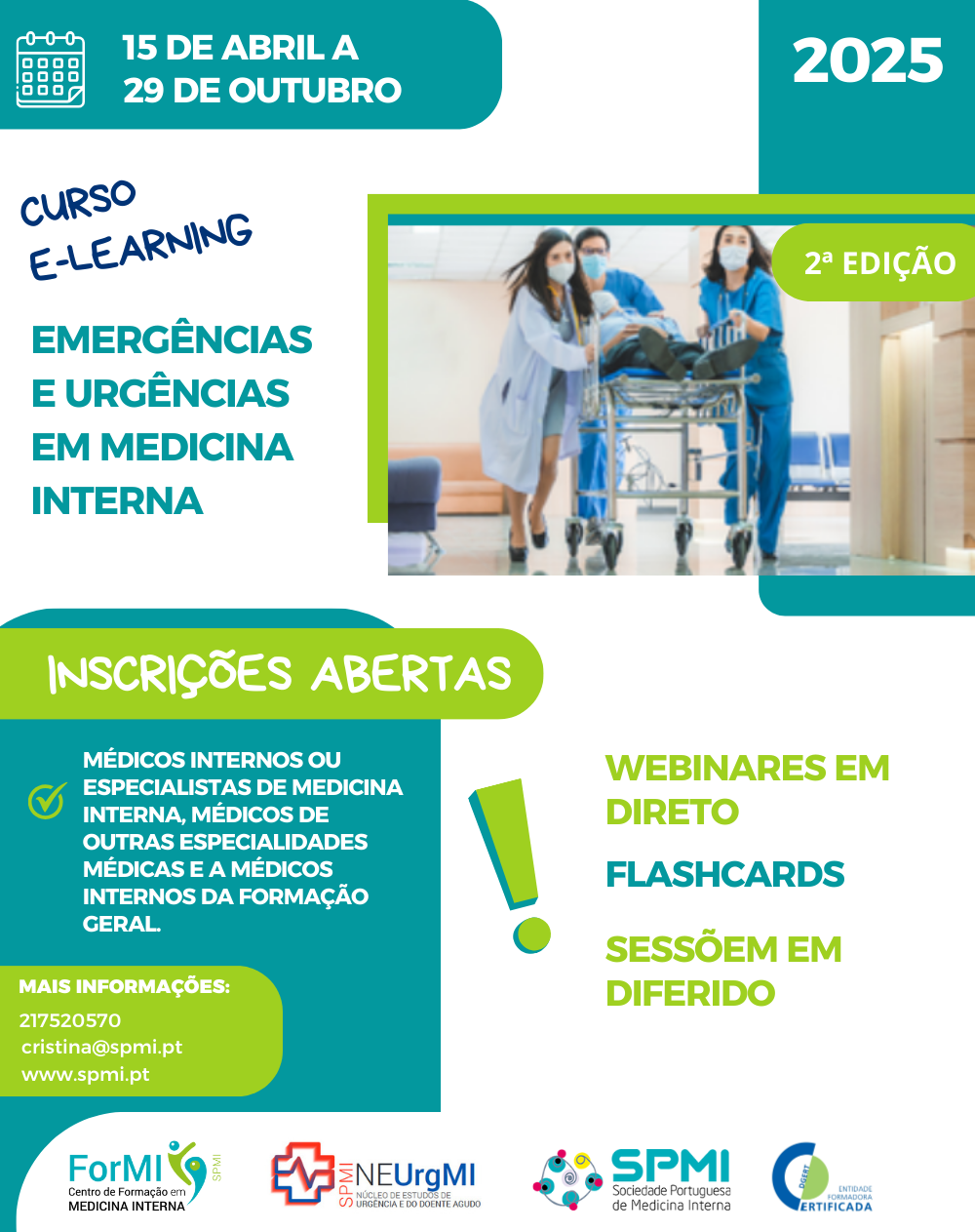Últimas Noticias
Eventos
Julho, 2025
Tipo de Evento:
SPMI
SPMI
Todos
Eventos Externos
Eventos Internos
Formi
NEDraras
OUTROS EVENTOS
Localização do Evento:
Todos
Todos
Altice Forum
Barcelona
Barcelona International Convention Centre
Beja Parque Hotel
Braga
Centro Cultural de Cascais
Centro Cultural Vila Flor
Centro de Congressos da Alfândega do Porto
Centro de Congressos de Lisboa
Centro de Congressos do Algarve
Centro de Negócios Transfronteiriço
Centro De Reabilitação Do Norte
Centro de Simulação Clínica
Coimbra
Crowne Plaza Porto
Fundação Champalimaud
Fundação Dr. António Cupertino Porto
Fundação Oriente
Grande Hotel de Luso
Hospital Nélio Mendonça - Funchal
Hotel Black Tulip
Hotel Dona Inês
Hotel dos Templários
Hotel MH Peniche
Hotel Solverde Espinho
Hotel Tryp Porto Centro
Hotel Vila Galé Coimbra
Hotel Vila Galé Ericeira
ICE Krakow Congress Centre
Instituto de Biotécnica da Universidade Católica
Lagos
Lisboa
Mercado Manuel Firmino
Ordem dos Médicos - Porto
Penafiel Park Hotel
Plaza Ribeiro Telles Centro de Eventos
Plaza Ribeiro Telles Centro de Eventos 4,3 173 comentários no Google Centro de conferências em Castanheira do Ribatejo
Porto
Santarém
Sede da SPMI
Sintra
Teatro Municipal de Portimão
Tivoli Coimbra Hotel
Universidade de Aveiro
Viseu




